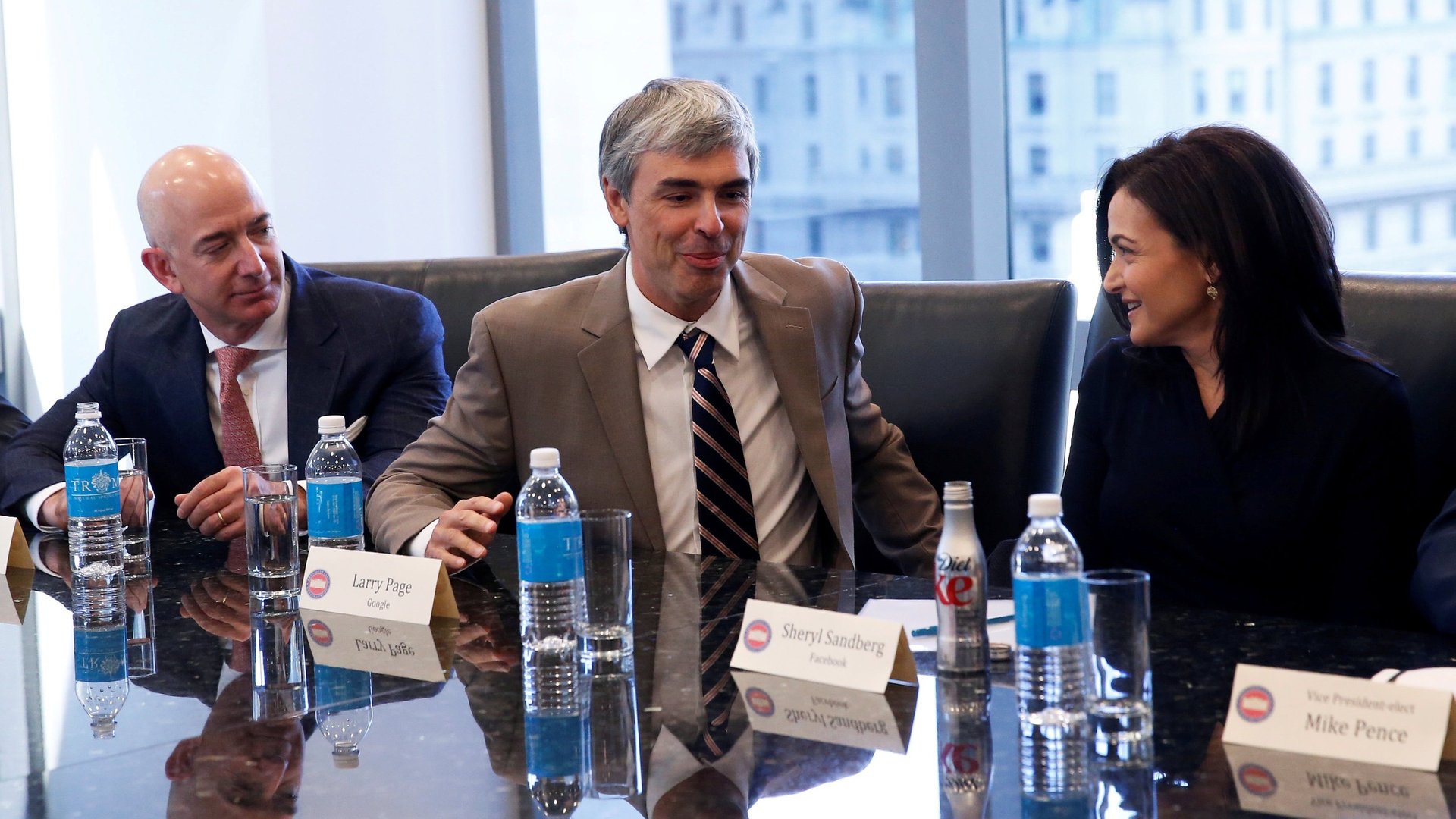Why Twitter didn’t get a seat at Trump’s table for Silicon Valley A-listers
When the bigwigs of tech met with US president-elect Donald Trump on Dec. 14, Twitter was nowhere to be seen.


When the bigwigs of tech met with US president-elect Donald Trump on Dec. 14, Twitter was nowhere to be seen.
Trump, with more than 17 million followers, has used the microblogging site as his megaphone to make tall—and often inaccurate—claims about everything from massive fraud in the US elections to China fabricating global warming, and to shake down those who oppose him with late night tweetstorms. Despite being such an avid user of the site, Trump did not invite Twitter to his tech summit, creating much speculation over why.
Some reports claimed Trump’s relationship with Twitter soured after the company did not allow his campaign to pay for an emoji or image to appear besides the #CrookedHillary tweets during the presidential campaign. Politico, citing an unnamed source, reported that the exclusion from Wednesday’s gathering stemmed from Twitter CEO Jack Dorsey’s direct role in rejecting the anti-Clinton emoji.
If bad feelings over an advertising deal were enough to oust Twitter, a case could also have been made for shutting the door on others, including Amazon head honcho Jeff Bezos and Apple chief executive Tim Cook. The former owns the Washington Post, which doggedly attacked Trump during the campaign and released the controversial Access Hollywood tapes showing Trump making lewd comments. Cook, who the Clinton campaign had reportedly considered (however briefly) for the post of vice president, threw a fundraiser for the Democratic candidate.
A less vindictive and reasonable justification for Twitter’s exclusion comes from a transition official: “They weren’t invited because they aren’t big enough,” he told Reuters. Twitter’s market capitalization was less than half of the smallest public company—Tesla—in attendance. Without naming Twitter specifically, Trump himself said size was a factor when it came to invites.
“I won’t tell you the hundreds of calls we’ve had asking to come to this meeting,” Trump said at the meeting. “And I will say Peter [Thiel] was sort of saying ‘no, that company’s too small’ and these are monster companies.”
As the only private company and by far the smallest by valuation at a reported $20 billion, the biggest odd duck at the meeting was Palantir (not included in the table because of lack of publicly available information.) But the invite came thanks to the influence of Thiel, who is a founder of the secretive software company and member of the Trump transition team.
Twitter used to hold a spot in meetings under the Obama administration when the government discussed ISIL, online bullying and other content-related matters. Trump had rounded up the Silicon Valley luminaries for an entirely different purpose: the “Strategic and Policy Forum” centered around jobs, immigration, tax reform, and investment.
Twitter declined to comment and the Trump administration did not respond to Quartz’s query.